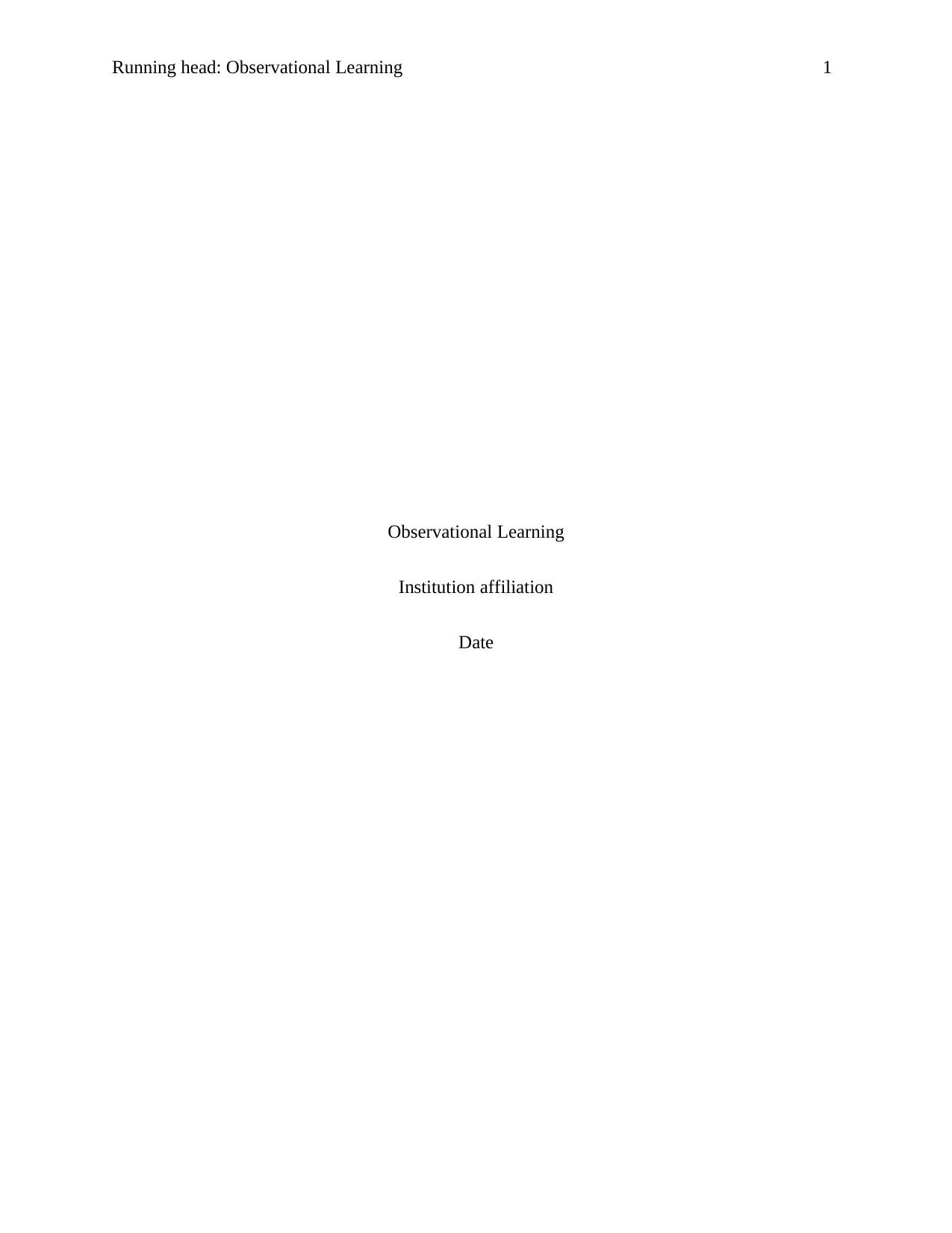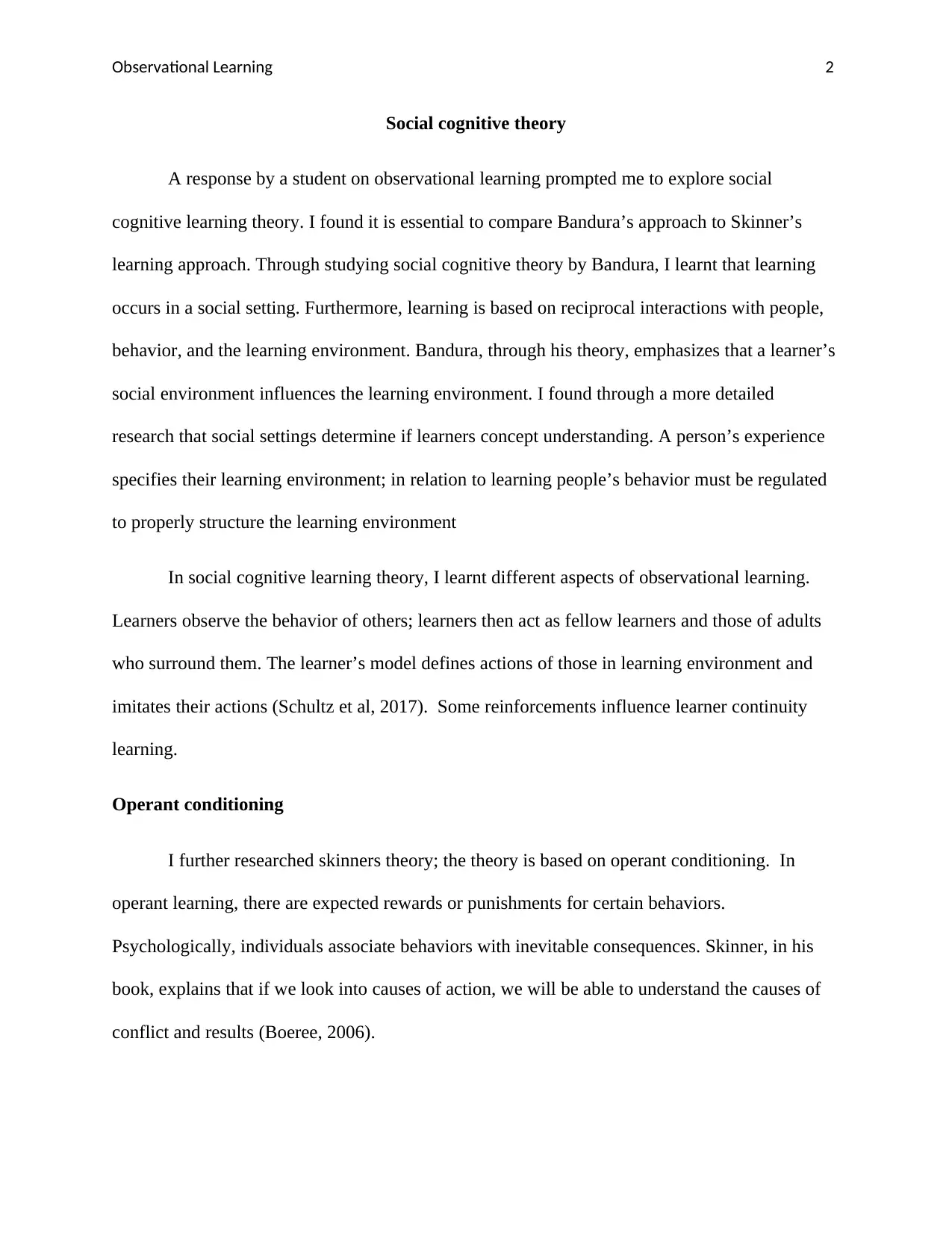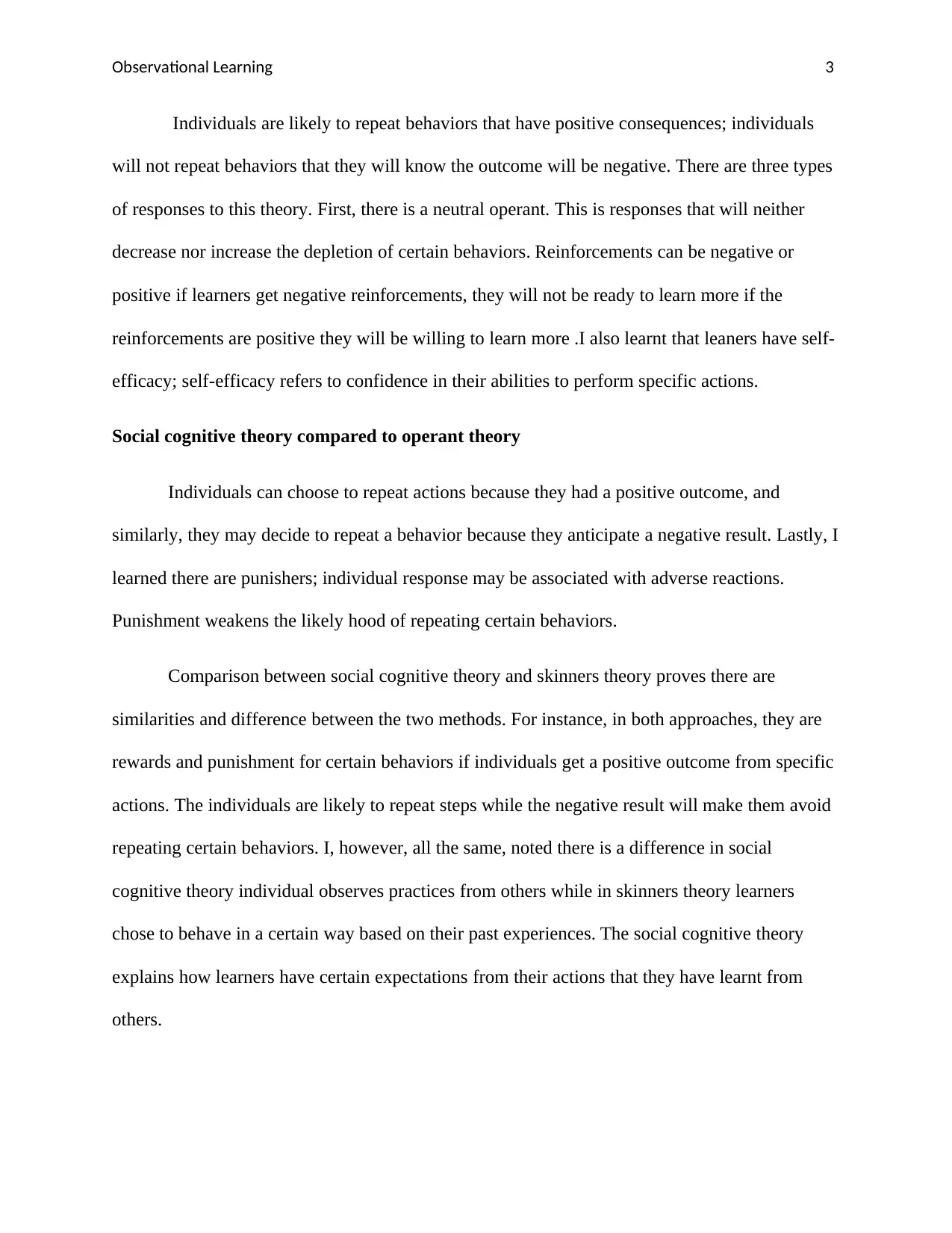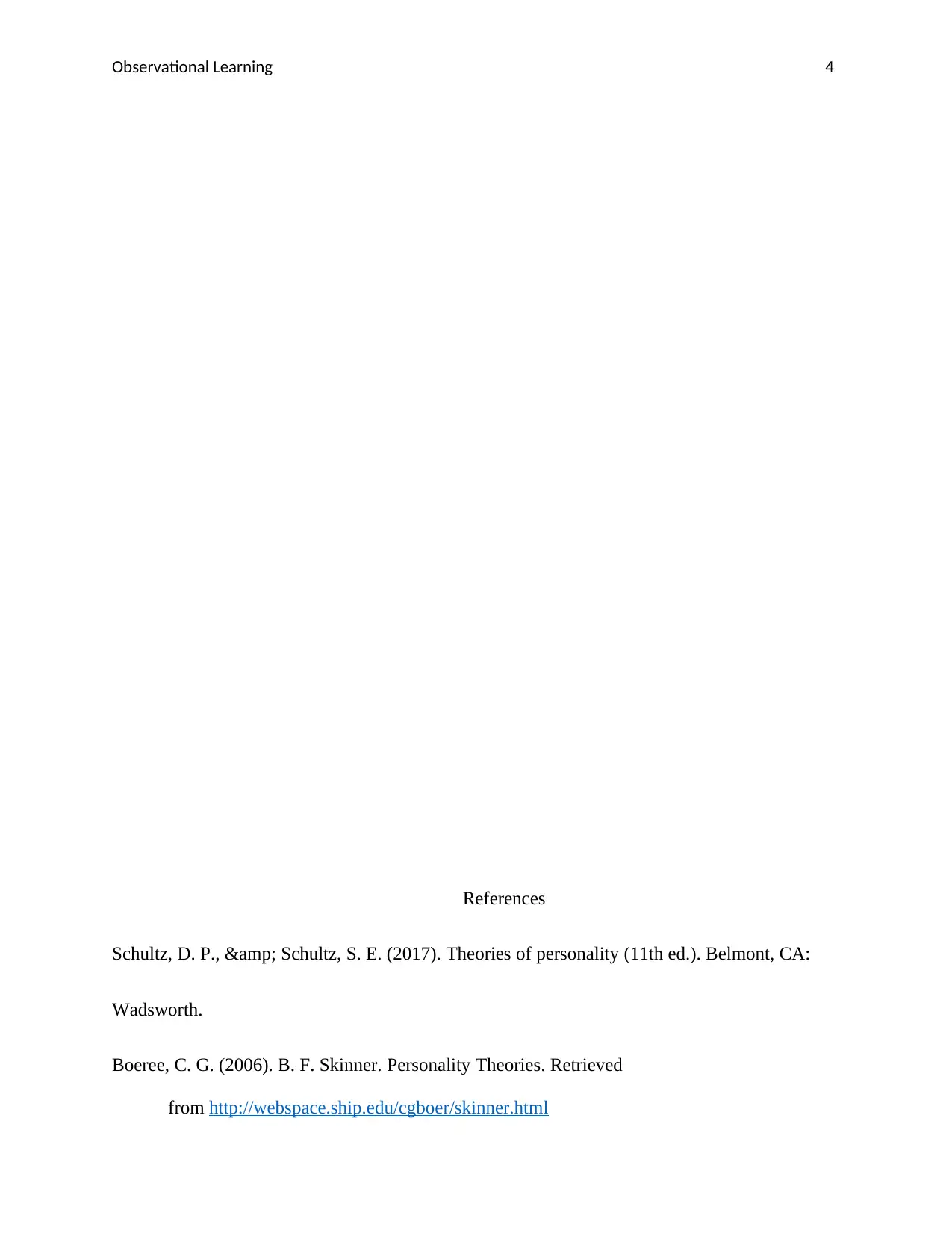Observational Learning: Social Cognitive Theory Analysis
VerifiedAdded on 2022/11/07
|5
|638
|125
Discussion Board Post
AI Summary
This assignment analyzes observational learning through the lens of social cognitive theory, contrasting it with Skinner's operant conditioning. The student explores Bandura's emphasis on learning within a social setting, highlighting reciprocal interactions between individuals, behaviors, and the environment. The assignment details the concept of observational learning, where learners observe and imitate the actions of others. It also delves into Skinner's theory of operant conditioning, emphasizing rewards, punishments, and the impact of consequences on behavior. The assignment highlights the similarities and differences between the two theories, particularly the role of rewards and punishments, while also acknowledging the differences in how individuals learn through observation versus past experiences. Key concepts such as self-efficacy and the influence of reinforcements are discussed, providing a comprehensive overview of both theoretical approaches.
1 out of 5












![[object Object]](/_next/static/media/star-bottom.7253800d.svg)